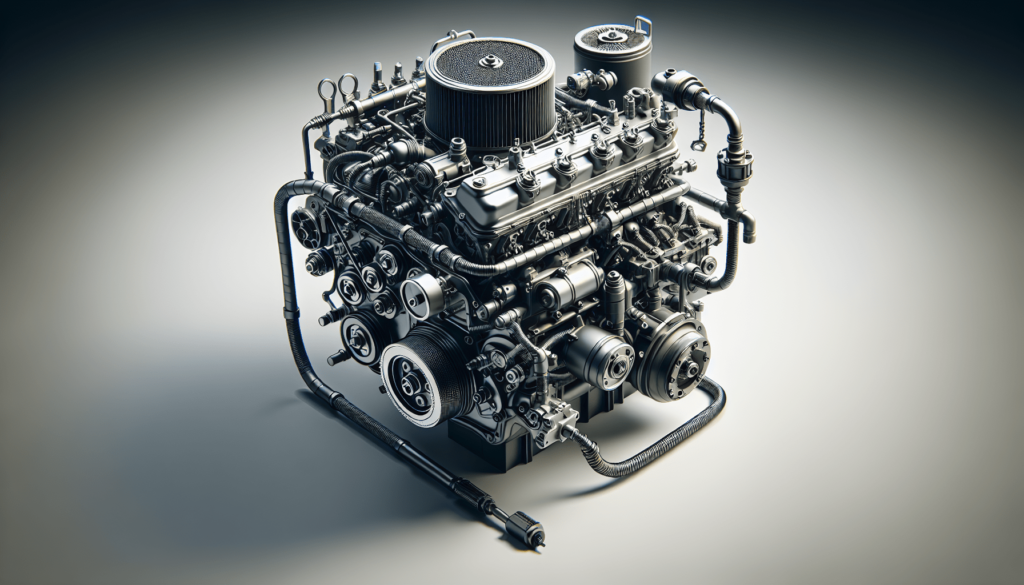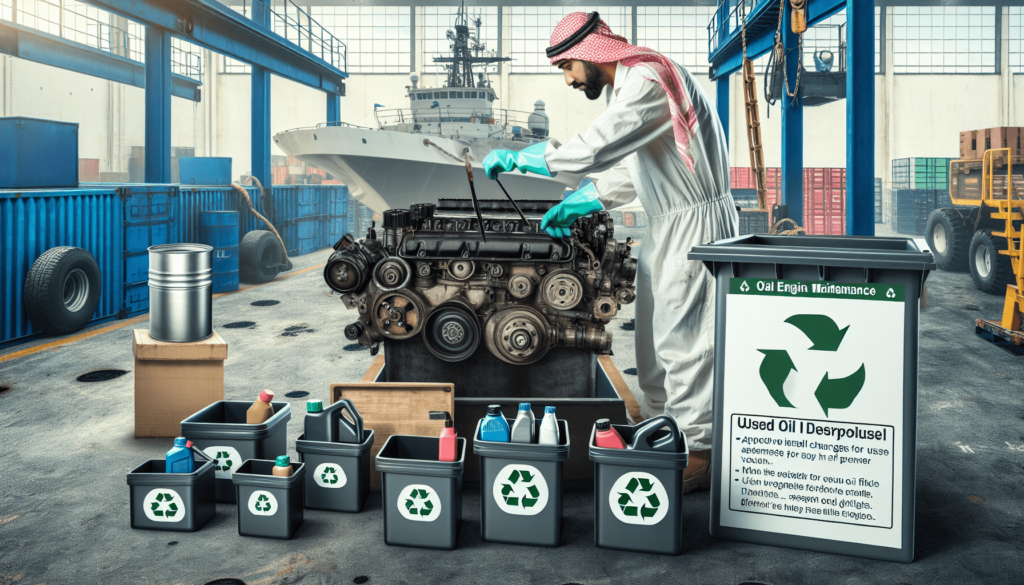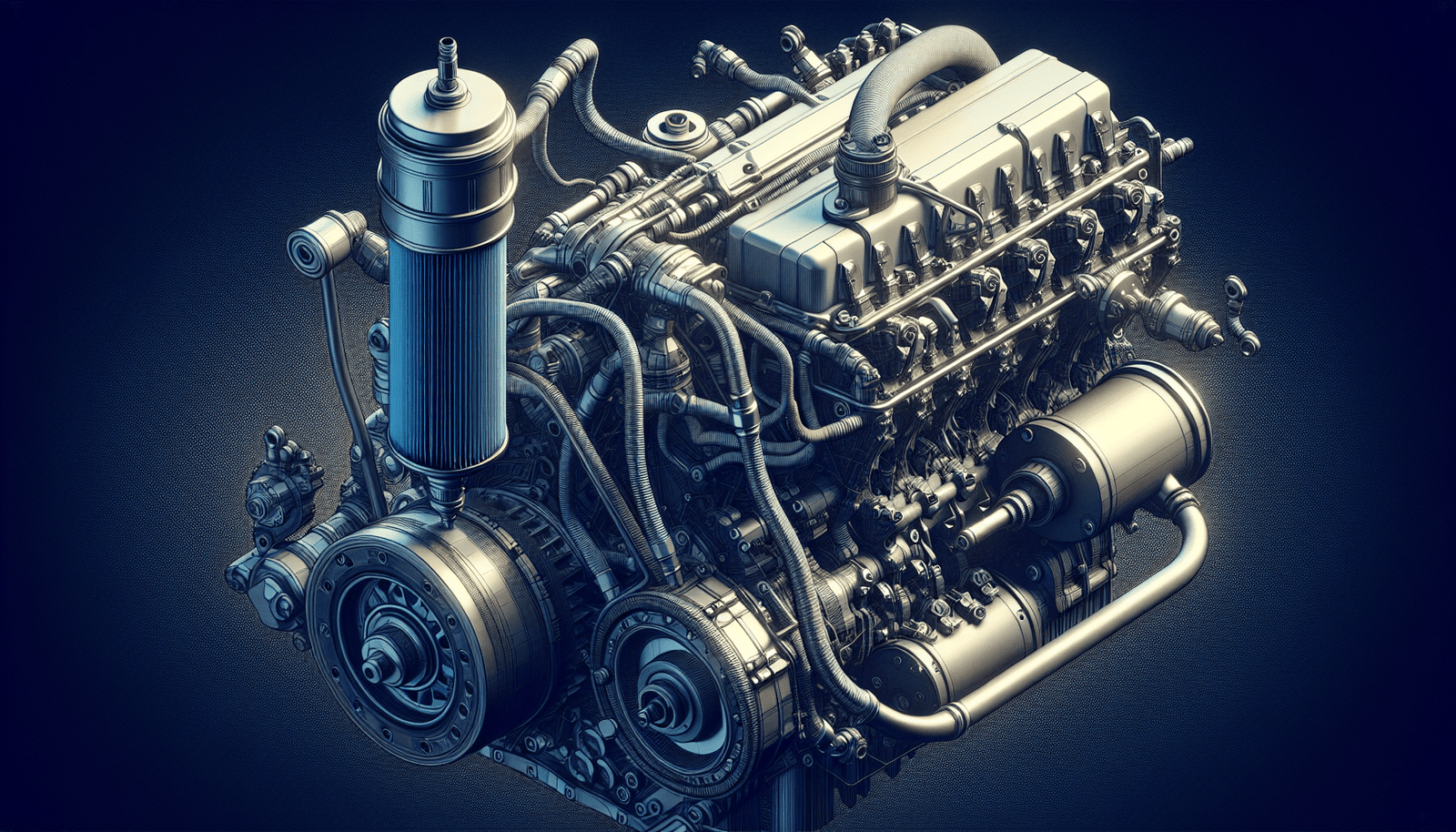Attention, boating enthusiast! There’s nothing like savoring the serenity of the open water, but mishaps such as oil and fuel spills can quickly dampen the experience. In the “Top Ways to Prevent Oil and Fuel Spills from Boat Engines”, you’ll find effective strategies to keep your engine clean and ocean-friendly, all while maintaining the integrity of your vessel. Set your worries aside and prepare to enhance your boating know-how with convenient, eco-conscious tips and tricks that can make a significant difference the next time you decide to venture into those alluring, dynamic waters.

Understanding the importance of spill prevention
When it comes to boat engines, the importance of preventing spills can never be emphasized enough. This is more so for oil and fuel spills, which carry heavy environmental, legal, and financial implications. It’s in everyone’s best interest—yours, the boating community, and the environment—to ensure responsible boating practices.
Overview of the impact of oil and fuel spills on the environment
Oil and fuel spills from boat engines significantly impact aquatic ecosystems. They cause immediate and long-term contamination of the water environment, affecting both plant and animal species. The oil films formed on water surfaces block sunlight, limiting photosynthesis for aquatic plants. Larger spills kill fish and birds directly, while smaller spills harm the organisms over time. They also cause aesthetic pollution and odorous nuisance, affecting recreational use and property values.
Understanding legal and financial repercussions
Besides the environmental impact, oil and fuel spills can land you into legal trouble. There are stringent laws and regulations in place to safeguard water bodies from pollution. You could face hefty fines and penalties depending on the severity and recurrence of spills. Don’t forget the financial implications arising from cleanup costs and potential compensation to those affected.
Explanation of how preventing spills benefits the boat engine
Besides the above implications, spill prevention also benefits your boat engine health. Spills often indicate leaks or other malfunctions that could be harming your engine’s performance. Regularly checking for and preventing spills ensures your boat engine runs efficiently and increases its lifespan.
Awareness of Boat Engine Health
The health of your boat engine is paramount. It directly impacts your boating experience—the better your boat engine’s health, the smoother and safer your journey.
Recognizing signs of oil or fuel leak
Recognizing early signs of oil or fuel leak is the first step towards boat engine health. Look out for oil sheen or fuel smell around your boat. Also, watch out for unexpected increases in fuel or oil consumption or unexplained loss of engine power.
Basic engine maintenance and periodic checks
Regular maintenance and routine checks go a long way in ensuring your boat engine is in top shape. Make sure to check and change your engine oil as recommended by your boat manufacturer. Keep the engine clean, ensure all parts are working efficiently, and refer to an expert in case of any malfunctions.
Long-term implications of poor engine health
Ignoring your boat engine’s health carries long-term implications that can cost you dearly. Poor engine health often leads to breakdowns on the water, stranding you, and endangering your safety. The costs of emergency repairs are typically higher. Furthermore, persistent engine problems reduce your boat’s value significantly.

Proper Fuel Handling
How you handle your boat’s fuel directly impacts the likelihood of spills. With proper handling, you can prevent most fuel spills.
Procedures for safe fueling
It’s important to turn off all sources of ignition during fueling, like the engine, electrical equipment, and flames. Keep the fuel nozzle in contact with the tank opening to prevent static sparks. Additionally, don’t rely on automatic shutoff devices; rather, pay attention to prevent overflow.
Choosing the right fuel and understanding fuel mixtures
Ensure you’re using the recommended fuel type for your boat engine. Wrong fuel types or mixtures can cause engine problems and increase the chance of spills.
Significance of not overfilling fuel tanks
Overfilling your fuel tank often leads to fuel expansion, pushing the excess out through the vent, resulting in a functionless and a potential environment hazard.
Systematic Maintenance Routine
A good maintenance routine is integral to preventing oil and fuel spills from your boat engine.
Checklist for periodic maintenance
Having a comprehensive checklist helps ensure you don’t miss out on any steps. Your checklist should include checks for fuel and oil leaks, regular oil changes, checking and cleaning the engine, and ensuring all components are in good shape.
Importance of professional inspection
While you can handle basic maintenance, it’s vital to have your boat engine professionally inspected periodically. Professionals can catch issues you might overlook and provide necessary repairs or replacements timely.
Tips for winterize and de-winterize boat engine
The process of winterizing your boat engine includes draining coolant, adding antifreeze, and filling your fuel tanks, among other steps. De-winterizing involves reversing these steps and ensuring your engine is ready for use. These processes help protect your engine from damage due to cold weather and prevent leaks or spills.

Utilizing Spill Containment Products
Spill containment products are critical in managing and minimizing potential spills from boat engines.
Use of oil-absorbent materials
Oil absorbent materials help clean up oil spills effectively. They come in different forms such as sheets, pads, and booms, and can be placed in areas where spills are likely to occur like under the engine and around fueling areas.
Employing drip pans and trays
Drip pans and trays placed under engines can catch leaking oil or fuel, preventing potential spills. They should be inspected and cleaned regularly to ensure they remain functional.
Consideration of fuel and oil containment booms
For larger boats or ones housed on water, fuel and oil containment booms can be useful. They help contain larger spills and prevent them from spreading, making cleanup easier.
Proper Oil Changing Methods
Proper oil changing methods can significantly reduce the risk of oil spills.
Using an oil change pump
An oil change pump helps drain oil from your engine into an appropriate waste container, reducing chances of spillages during oil changes.
Applying the use of oil absorbents or pads
Oil absorbent materials or pads can be useful during oil changes, especially under the engine and around the working area. They help catch any spills and should be properly disposed of after use.
Safe disposal of used oil
Properly dispose of used oil at designated collection facilities. Cities or marinas usually have such facilities. It’s illegal and harmful to dispose of used oil into water, even in small amounts.

Use of Advanced Technology and Tools
Leveraging advanced technology and tools can significantly aid in the prevention of oil and fuel spills.
Employing automatic bilge pump switches
Automatic bilge pump switches help maintain the boat’s balance by pumping out excess water from the bilge. Doing so decreases the likelihood of oil or fuel spills caused by boat instability on water.
Understanding the role of fuel/air separators
Fuel/air separators act as a defensive tool, preventing spills by returning gaseous fumes to the fuel tank rather than allowing them to escape into the water.
Using electronic fuel monitors
Electronic fuel monitors help you keep tabs on your fuel levels, consumption rate, and other data. This information can alert you to leaks or unusual fuel usage, which could indicate potential fuel spills.
Appropriate Storage of Boat
Proper storage of your boat is key in preventing spills, leaks, and other damage.
Proper storage of boat to prevent leaks
Store your boat on a flat surface and cover it properly to protect it from elements. Ensure the bilge is clean and dry, with the drain plug removed.
Pre-season and off-season boat engine care
Part of proper storage involves caring for your boat engine pre-season and off-season. Cleaning, routine checks, maintenance, and timely repairs help prevent spills and leaks during storage.
Proper ventilation of boat storage areas
Ensure your boat’s storage area is well ventilated to prevent the accumulation of harmful fumes, which could lead to fires or fuel leaks.

Emergency Response Plan
Despite all preventive measures, spills can still occur. Having an emergency response plan ensures you’re ready to handle such situations and minimize damage.
Creating a plan for potential fuel spills
Your plan should outline steps to stop ongoing spills, contain the spill, clean up the affected area, and report to relevant authorities. It can also include contacts of professional cleanup services you can reach out to.
Having necessary materials on hand for spill control
Keep spill control materials like absorbents and containment booms on hand. They should be easily accessible and in sufficient quantities.
Quick actions to safeguard the environment and minimize damage
In case of a spill, act quickly to prevent further spread. Shut off sources of ignition, contain the spill, and start cleanup immediately. This protects the environment and helps you avoid legal repercussions and hefty fines.
Promoting Boat Safety Culture
Promoting a safety culture among the boating community goes a long way toward preventing oil and fuel spills.
Education and awareness among boat community
Keenly sharing information on the environmental, legal, and financial impacts of spills can help foster awareness. Empower other boaters with information on how to prevent and handle spills.
Supporting initiatives for preventing oil and fuel spills
Support measures in place to prevent spills, like inspection campaigns and cleanup initiatives. This contributes to a cleaner, safer boating environment for everyone.
Promulgating safety regulations and policies
Finally, advocate for strict safety regulations and policies to enforce responsible boating practices. This goes beyond individual boats and encourages the whole community to prevent spills.
Oil and fuel spills from boat engines are adverse, but they are preventable. If every boater plays their part, we can enjoy cleaner water bodies, a thriving aquatic ecosystem, and a rewarding boating experience.

